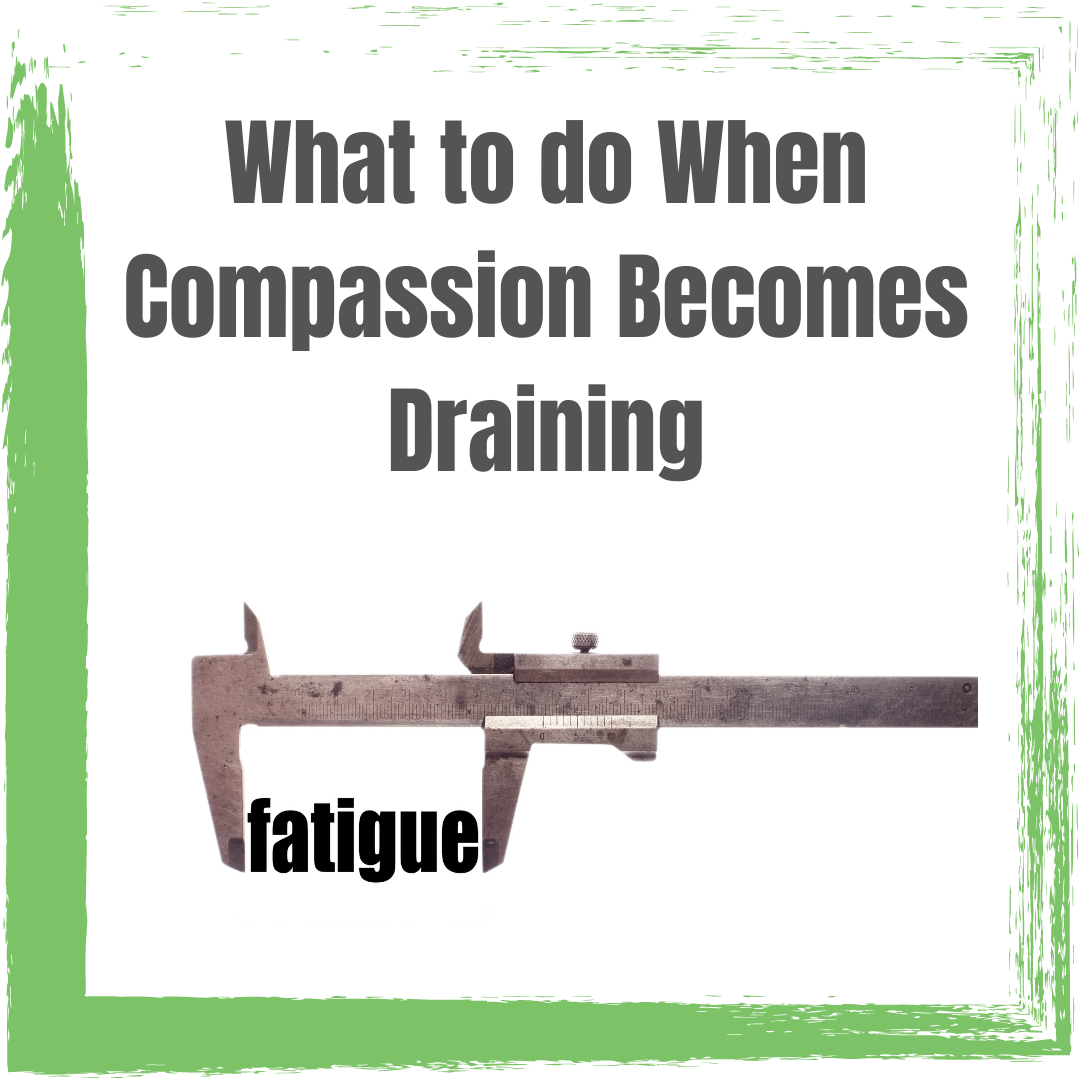There is a call to action associated with compassion unlike its close relatives, empathy or sympathy. Because it calls us to act in a helping manner, compassion can drain us. This is especially the case when situations call us to action frequently or repetitively. In fact, there is a name for this: Compassion Fatigue. We’ll explore what Compassion Fatigue is and what can be done to lead caring lives of action while keeping our cups full.
Compassion is defined as “sympathetic consciousness of others’ distress together with a desire to alleviate it.”
Merriam-Webster Dictionary
The Energy Drain
Before we dive into how we can keep our energy while caring for others, it’s important to understand how we lose it in the first place. Compassion Fatigue is defined as “the physical and mental exhaustion and emotional withdrawal experienced by those who care for sick or traumatized people over an extended period of time.” It can also happen from wanting to help these people but is ultimately a result of us taking on another’s emotional burdens.
This happens to those who are taking care of others such as: caregivers to elderly parents, healthcare practitioners including nurses, doctors, and therapists. Some of the symptoms of compassion fatigue are:
- Chronic exhaustion
- Headaches
- Dreading working for or taking care of another and feeling guilty as a result
- Reduced feelings of sympathy or empathy
- Feeling irritable, anxious, or angry
- Trouble sleeping and more
So what do we do if we find ourselves in a situation where we are helping others on a regular basis and start to feel drained or find ourselves lacking compassion due to fatigue?
Charge The Battery
Compassion fatigue can be accompanied by shame or guilt over how we are feeling. The residual feeling of it can leave us feeling even more drained with less capacity to show up as compassionate caregivers or friends. Charging our batteries before we expend our emotional energy is key. Here are a few ways we can replenish our energy supplies and avoid compassion fatigue:
- Self-Care: Those of us who spend the majority of our time supporting others often get so wrapped in other’s needs, we neglect our own. Making sure we exercise regularly, get the proper nutrition, get enough rest, and set emotional boundaries are just some ways to charge our batteries through self-care.
- Leisure: Not making time to do things that bring us joy often plays a major role in compassion fatigue. It’s a great way for us to recharge and reconnect to ourselves.
- Healthy Friends: When we develop friendships outside of our caregiving roles it provides us with a repose from our heavier roles.
- Therapy: Therapy isn’t a tool we must use after a trauma. It is a highly useful and effective preventative tool; giving us all the coping tools and strategies we need in real time.
These are some of the many ways to prevent compassion fatigue. If you would like to find out more, please do your research and remember to find the harmony between caring for others and caring for yourself.
By Mona Nyree Stephens, contributing author
We invite you to discover inspiring and effective ways to care for yourself and to serve others. Now more than ever, caring is what we all need most. Caring for our self. Caring for others around us. Life now demands caring, resilience and compassion like never before. So, become a Custodian of the Caring Movement and help create the world we need right now, the world we want for our future generations.
UCA resources available to help include the Turbulent Times Resources Center, radio show, publications and online store offering members huge discounts and always free shipping.

